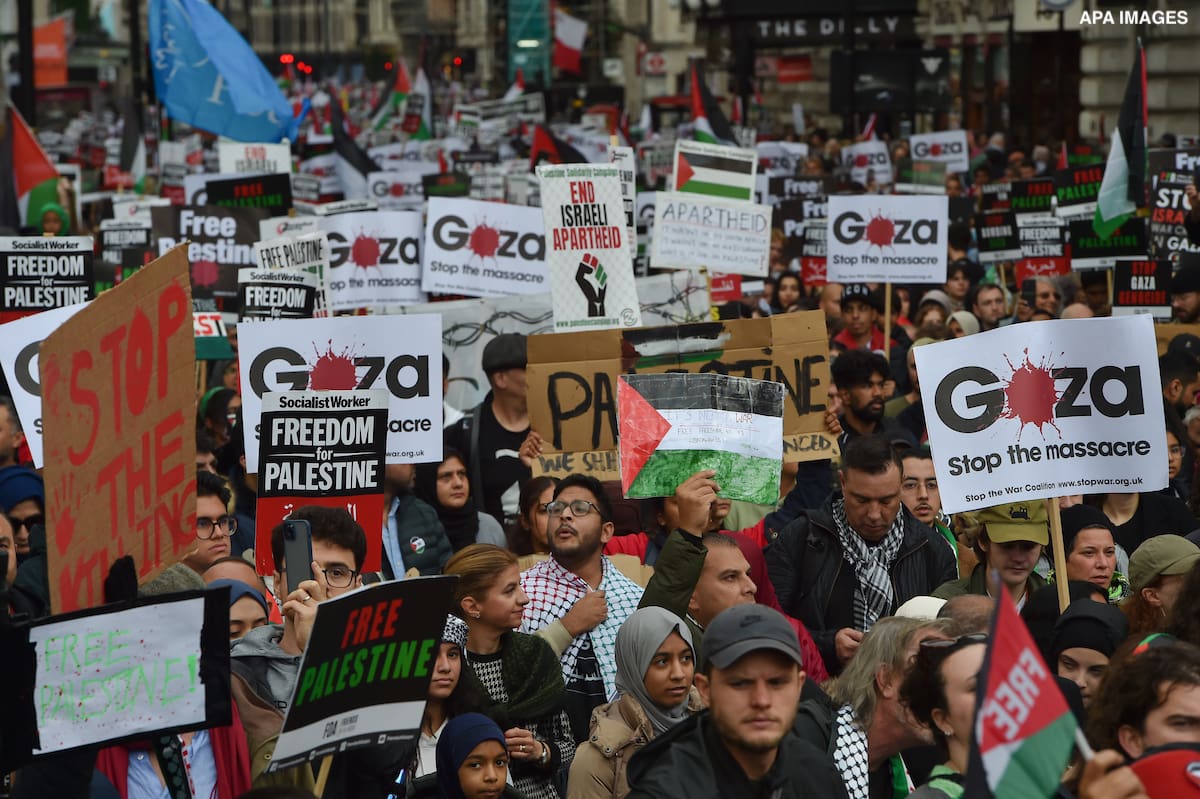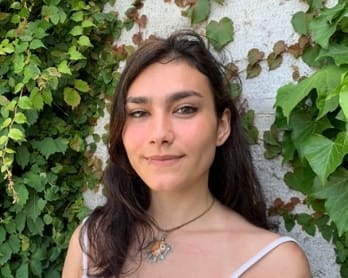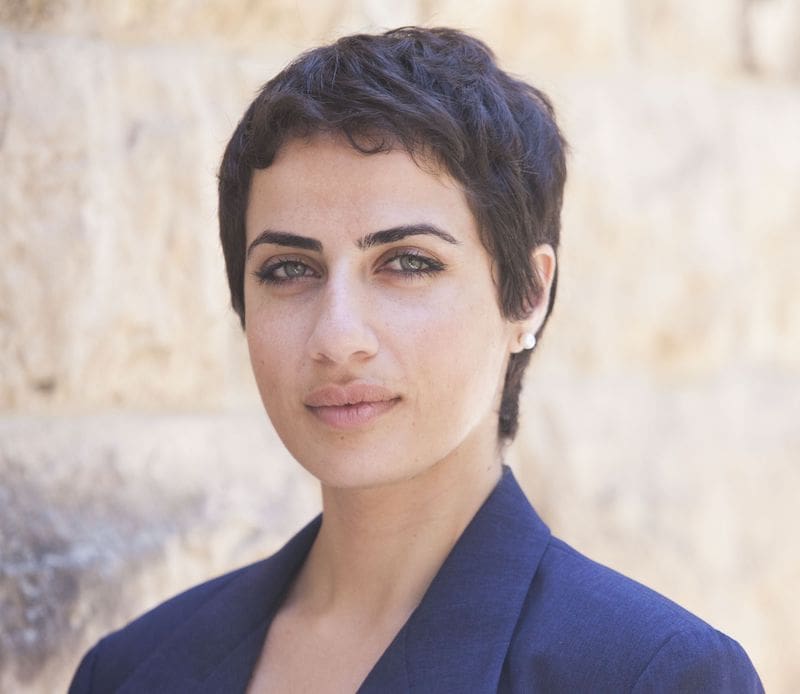
Israel’s 2023 genocide of Palestinians in Gaza has horrified many around the world and drawn widespread public outcry, with unprecedented levels of solidarity organizing taking place across the globe. Millions have gathered in the streets, issued public statements, and mobilized to block corporate and state-led support not only for the Israeli regime’s recent onslaught but for its decades-long colonial occupation of Palestine. But as this unparalleled solidarity has emerged, so too has extraordinary repression at every level.
Al-Shabaka spoke with Layla Kattermann of the European Legal Support Center (ELSC) and Diala Shamas of the Center for Constitutional Rights (CCR) for further insight on this suppression of mobilization. Together, they detail some of the intimidation tactics and punitive actions taken by governments across North America and Europe and offer concrete advice for how to resist such efforts to stifle Palestine solidarity.
This interview is a lightly edited version of a conversation featured on Al-Shabaka’s podcast series, Rethinking Palestine, hosted by Senior Analyst Yara Hawari, in October of 2023. The full discussion may be listened to here.1
Since the start of the assault on Gaza, what has the repression of solidarity with Palestine looked like in Europe?
Layla Kattermann
The repression we are currently witnessing in Europe is the culmination of a decades-long attempt to connect the Palestinian identity and experience with terrorism and antisemitism. This false connection has been particularly exploited to suppress protests and demonstrations. Although the right to protest is considered fundamental in Europe—and demonstrations are an indicator of a healthy democratic system—several countries, such as Germany, France, and Austria, are violating that right by banning demonstrations in solidarity with the Palestinian people.
The language used by European media, politicians, and police orders to justify Palestine solidarity repression is aimed at thwarting any divergence from the colonial mainstream narratives Share on X
In Germany, for example, not only are protests being banned, but we are also witnessing police violence, arrests, and harassment for any displays of Palestine solidarity. In Berlin alone, there were roughly 600 police detentions between October 11th and October 20th, 2023, for this reason. This crackdown has also extended to schools: The Berlin Senate Department for Education, Youth and Family, for example, sent a letter to all Berlin school authorities and supervisors asking them to ban students from wearing keffiyehs and other Palestinian symbols or slogans, such as “Free Palestine.” School authorities were likewise asked to notify the police of any violations of this ban, and in at least one instance a school director has been suspended for refusing to comply.
Work suspensions and terminations of employment such as these are also on the rise for expressions of solidarity with Palestine. Other forms of repression that we are seeing at increasing rates include smear campaigns of individuals and groups, online de-platforming, withdrawal of use of venues, cancellations of events, and disinvitations. Many of these punitive measures are justified through racist arguments and bolstered by the rise of far-right parties across Europe, which have consistently dehumanized migrants, refugees, and particularly those of Muslim backgrounds.
What about in the US?
Diala Shamas
In the US, there has been a range of incidents of both institutional and private repression. On the institutional side, law enforcement officers, including the FBI, have summoned Palestinians for questioning through “voluntary interviews,” often leveraging immigration concerns or status to coerce individuals into speaking. Additionally, local police departments have circulated notices indicating plans for special monitoring or surveillance of Palestine solidarity protests. This has come as a directive from the highest levels of government—indeed, President Biden himself mentioned that he was instructing law enforcement to monitor the situation closely. In New York City, Mayor Eric Adams went further to essentially equate protesters marching and speaking out in support of Palestinian rights with support for terrorism. Such discourse has been widespread, from elected officials across city, state, and federal levels. It is really concerning to witness the exploitation of this tremendous power imbalance, especially when these officials start publicly naming different activist groups, and sometimes even specific individuals.
Private repression is also taking place at a frightening level. For example, a conference by the US Campaign for Palestinian Rights was cancelled because the venue—a Hilton hotel—received threats and ultimately pulled out from hosting the event. There has also been a surge in hate crimes, from the violent murder of 6-year-old Palestinian-American, Wadea Al Fayoume, in Chicago, to the attempted murder of three Palestinian university students in Vermont.
There is an infrastructure behind the repression of Palestine solidarity that includes both legislation and a discourse that equates anti-Zionism with antisemitism. In moments like this, the switch can be flipped and all tactics may be… Share on X
Similarly, the professional repercussions of voicing support for the Palestinian people at this time have been at an all-time high. At academic institutions, for example, professors have come under pressure for statements made about October 7th and the unfolding genocide in Gaza. And across various professional fields we are learning of reports of individuals demanding that staff face severe consequences or be terminated from their positions for statements made in their personal capacities. This is happening all over the US, and we are yet to understand the full scale of it.
Doxxing is likewise on the rise, with the posting of private and identifying information of people speaking out against the genocide in Gaza. On the Harvard University campus, for instance, pro-Israeli groups sponsored digital billboard trucks to drive around with pictures of student activist leaders under the headline “antisemite.” The students featured had signed statements condemning Israeli atrocities in Gaza. Acts such as these are clearly intended to intimidate those in support of Palestinian rights and to inflict both mental health and professional consequences. It is worth noting that many of the people subjected to doxxing are Palestinian, Arab, or from other communities of color.
Is this level of repression unprecedented?
Layla Kattermann
Not necessarily. Rather, it should be understood as a continuation and acceleration of a worrying trend. The repression of the Palestine solidarity movement or Palestinian rights advocacy did not start with the latest bombardment of Gaza. While the ELSC has monitored Europe’s crackdown on Palestine solidarity since 2019, it of course existed long before. It is a repression that has long been justified through racist depictions of Palestinians that depict them as either terrorist threats and/or inherently antisemitic.
In Europe, there is the Orwellian strategy used to portray the Other as a barbaric threat and the Self as a barometer of moral security. Within this strategy we see new words being invented and undesirable ones stripped of their meaning. Thus, the language used by European media, politicians, and police orders to justify Palestine solidarity repression is aimed at thwarting any divergence from the colonial mainstream narratives. As part of this strategy, we see a huge effort by European politicians and mainstream media that echoes the “us versus them” and “civilized versus uncivilized” dichotomy of 9/11.
While the tactics used to silence criticism of the Israeli regime today are not as visible or obvious as imprisonments or assassinations of dissidents, what we see instead is the attempt to damage activists’ psychological and organizational strength. Indeed, the censoring of civil society organizations and the demonization of solidarity groups are efforts to reduce the political capabilities of the Palestine solidarity movement. Likewise, the attempts to criminalize certain slogans, such as “from the river to the sea, Palestine will be free,” are obvious efforts to frighten activists. This repression is the continuation of a trend that started several years ago, with implementation of the International Holocaust Remembrance Alliance definition of antisemitism in many institutions and the passing of anti-BDS legislation.
Diala Shamas
The repression itself is not unprecedented, but the level and scale feel like nothing we have had to face before. Those particularly working in the legal response to this crackdown have noted that the numbers of reported instances of repression are at an all-time high. But I do think it is helpful to think of all of this as part of the architecture of repression that has been built over the last decade. Indeed, there is an infrastructure behind the repression of Palestine solidarity that includes both legislation and a discourse that equates anti-Zionism with antisemitism. In moments like this, the switch can be flipped and all tactics may be activated at once. These are mechanisms of repression that have become very well oiled in many ways over a long period of time.
It is important that both individuals and the movement as a whole are not intimidated into silence or inaction Share on X
On the other hand, because this has been happening over a period of years, we also now have institutions and professionals well prepared to challenge these oppressive strategies. In a moment such as this, they are able to provide support and a line of defense. For example, Palestine Legal has a network of attorneys that they’ve built up to support people facing attacks for their advocacy in favor of Palestinian rights. Meanwhile, CCR is also doing similar work but on a broader range of civil and human rights issues. Nonetheless, there is a dire need to expand our movement defense capabilities to be able to handle the unprecedented caseload.
How have the ELSC and CCR responded to this repression?
Layla Kattermann
The ELSC comprises movement lawyers who consider themselves accountable to Palestinian civil society. In that sense, we view the law in a pragmatic way and are very aware of the fact that it can be used as an exploitative and even oppressive tool. But we also see law as a tool to both push back against repression and one that can mobilize people. The ELSC has three pillars that define our work: defense, monitoring, and empowerment. The defense pillar works as a filter between clients and lawyers, where we offer co-counseling and expertise to defend those facing repression. The monitoring pillar involves keeping a record of the mechanisms used to silence advocates and the criminalization of Palestine solidarity work, not only for archival purposes but also to track trends of repression. The empowerment pillar involves working on campaigns of strategic litigation, such as holding companies accountable for human rights violations, and strengthening the Palestine solidarity movement.
Diala Shamas
Since the outset of the assault on Gaza, we have been in rapid response mode. It’s very hard to strike the right balance of focusing on repression and making sure that people are protected as they speak out and also not losing the focus on what’s happening in Gaza and throughout Palestine. In that regard, we have been really attentive to trying to offer language and legal analysis about what the Israeli regime is doing to the Palestinian people in Gaza. Not only have we reaffirmed that the Israeli regime’s current assault constitutes genocide, but we have also laid out US complicity in that genocide.
Simultaneously, we have increased our work to support those who are doing important advocacy in the US. For example, we have represented individuals who have been contacted by the FBI for questioning, and we have fielded calls from people across the country who are dealing with consequences in their workplaces for speaking out against the genocide in Gaza. Relatedly, Palestine Legal has been building a network of attorneys, largely with a focus on experts in employment law, to help respond to these calls. We have also been increasing our capacity to advise individuals facing doxxing attacks, both in terms of personal safety as well as online reputation.
What has been really great to see is so many people within the legal community reach out and ask how they can support.
What advice would you give organizers at the moment—particularly those who might be feeling apprehensive or fearful in light of this repression?
Layla Kattermann
It is important that both individuals and the movement as a whole are not intimidated into silence or inaction. The allegations and accusations that politicians and the mainstream media use against the Palestine solidarity movement are nothing new. I think we should therefore be confident enough in countering and challenging them. It’s also important to remember that we are stronger in numbers, as demonstrated in Berlin, where the masses defied the police prohibition on protests. Of course, the authorities can still resort to violence, but it’s important in these moments that people stick together.
Now more than ever is the time to speak up and out against what is happening. Not only is there a moral imperative in doing so, but it will also enable you to connect with other like-minded people and organize together. Smear and doxing campaigns usually aim to isolate a person from support networks and wider society. Indeed, it is always easier to attack one person rather than a group. Therefore, strength in numbers when it comes to defying the current repression cannot be underestimated.
Diala Shamas
We must remind ourselves that, while we’re seeing an unprecedented scale in repression, we’re also witnessing an unprecedented amount of solidarity and people speaking out against what’s happening to Palestinians in Gaza. The rise in repression is, in fact, in direct correlation with the growing Palestine solidarity movement. In this moment, we cannot stop speaking out and opposing genocide.
With this in mind, it’s also important to be cautious. We are all really angry and outraged at what we are seeing and experiencing. We have seen some of the most horrific images and videos coming out of Gaza, and the sense of abandonment coupled with feelings of both rage and sadness is overwhelming. In this climate, it is really difficult to remain clear-headed and rational. This is when we see lapses in judgment that are sometimes exploited by the other side. Yet as Palestinians and as advocates for Palestinian rights, we cannot afford the luxury of a lapse in judgment because it results in our energies and attention being diverted.
If one finds themselves in a situation where they are facing repression, it is imperative to know your rights. In the US, if you are approached by any authorities for an interview, you are entitled to decline and refer them to your lawyer. Alternatively, you can take their number and have your lawyer reach out to them. For legal representation, you can contact Palestine Legal, the Center for Constitutional Rights, your local National Lawyers Guild chapter, your local CAIR chapter, or your local ACLU affiliate.
We must remind ourselves that, while we’re seeing an unprecedented scale in repression, we're also witnessing an unprecedented amount of solidarity Share on X
If you are called into a meeting with your employer or your university administration, try to get a legal consult before going into that meeting, or don’t go in alone. It is also important to document everything. This can be in the form of notes or self-written emails, with timestamps of events as they occur. It might also make sense to try to be preemptive and reach out to your employer or your university administration to let them know what is happening and make sure that they are hearing from you first and not from those who are trying to smear you. Importantly, remember you’re not alone—if you can and are confident, speak out about the repression so that you can find solidarity with others and vice versa.
Over the years, we’ve gone back and forth on the question of whether we want to talk openly about how difficult it is to speak about Palestinian rights, because we don’t want to discourage folks from doing it. However, we are well past this point—everybody knows that this kind of repression is happening—so we now feel that speaking out actually draws support and solidarity and can also build on political organizing. We’ve seen really inspirational instances of activists coming together to support each other, as well as professionals offering support to colleagues to find alternative employment when someone’s employment has been terminated. This kind of solidarity is a really important way to build resilience in these moments of heightened repression.
Which legal resources would you suggest for people navigating this repression?
Layla Kattermann
We have several resources available on the ELSC website that are also country-specific and are aimed at educating people on their rights, because much of the current repression is unconstitutional and unlawful. Certainly, in many countries across Europe, the police are exercising unlawful conduct. In those situations, it’s always useful to record the police, to register the officer and unit number, and to make the abuse or conduct publicly known. As Diala said, one shouldn’t deal with such repression alone. From our experience, once publicized, people usually reach out and offer support. Indeed, at the moment, we are seeing people really helping each other and standing in solidarity with one another against this pushback.
If you are in Europe, you can report to the ELSC. There are also a lot of collectives of lawyers at the moment that are actively helping the Palestine solidarity movement.
Diala Shamas
People in the solidarity movement across the US should familiarize themselves with Palestine Legal’s website. It has a range of resources, including on how to navigate doxxing and hostile environments on university campuses. If someone is struggling with something specifically regarding state repression, whether it’s federal or local law enforcement, there are a range of organizations that can support you. The organizations I mentioned previously may be able to also refer you.
I’d also be remiss to not mention the importance of taking care of yourself—to breathe and remember that you have a community, because these small things allow us to continue our work. These are really, really difficult times. We are all feeling it. But we don’t have a choice other than to continue speaking out. Indeed, the consequences might be difficult for us here in the US or Europe, but the conditions are far worse for the people in Gaza, as well as for those in the rest of colonized Palestine.










